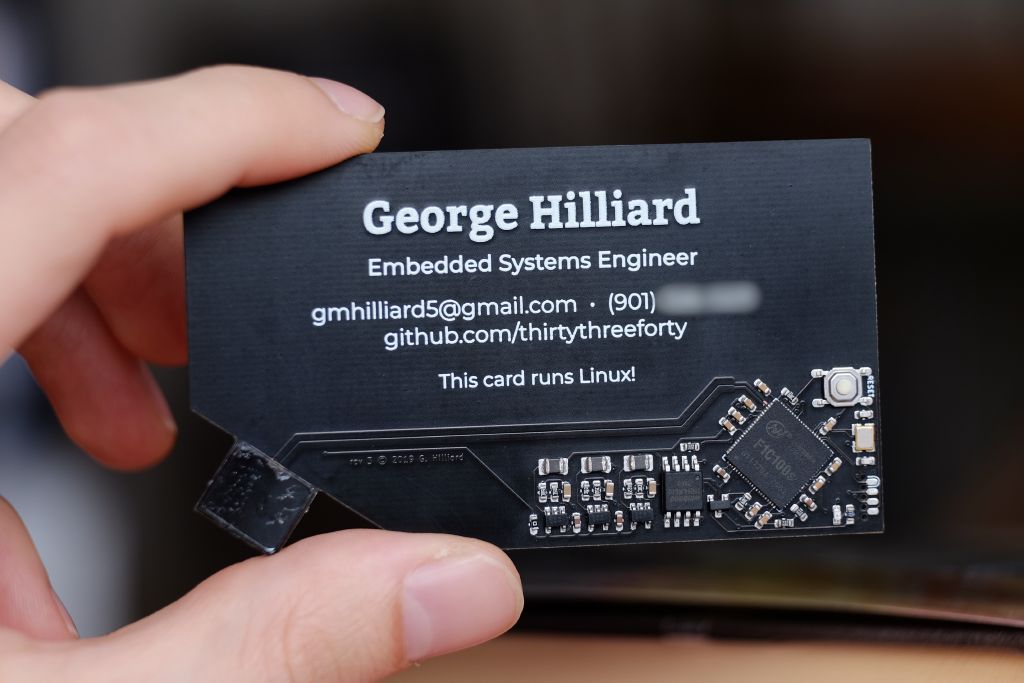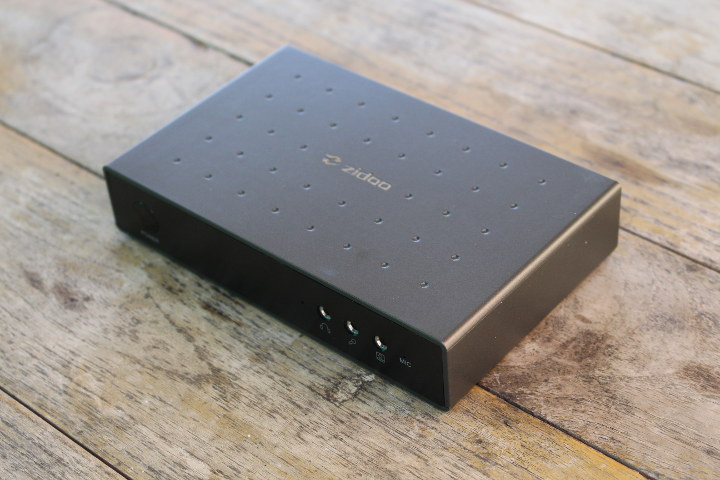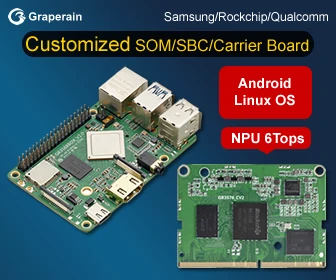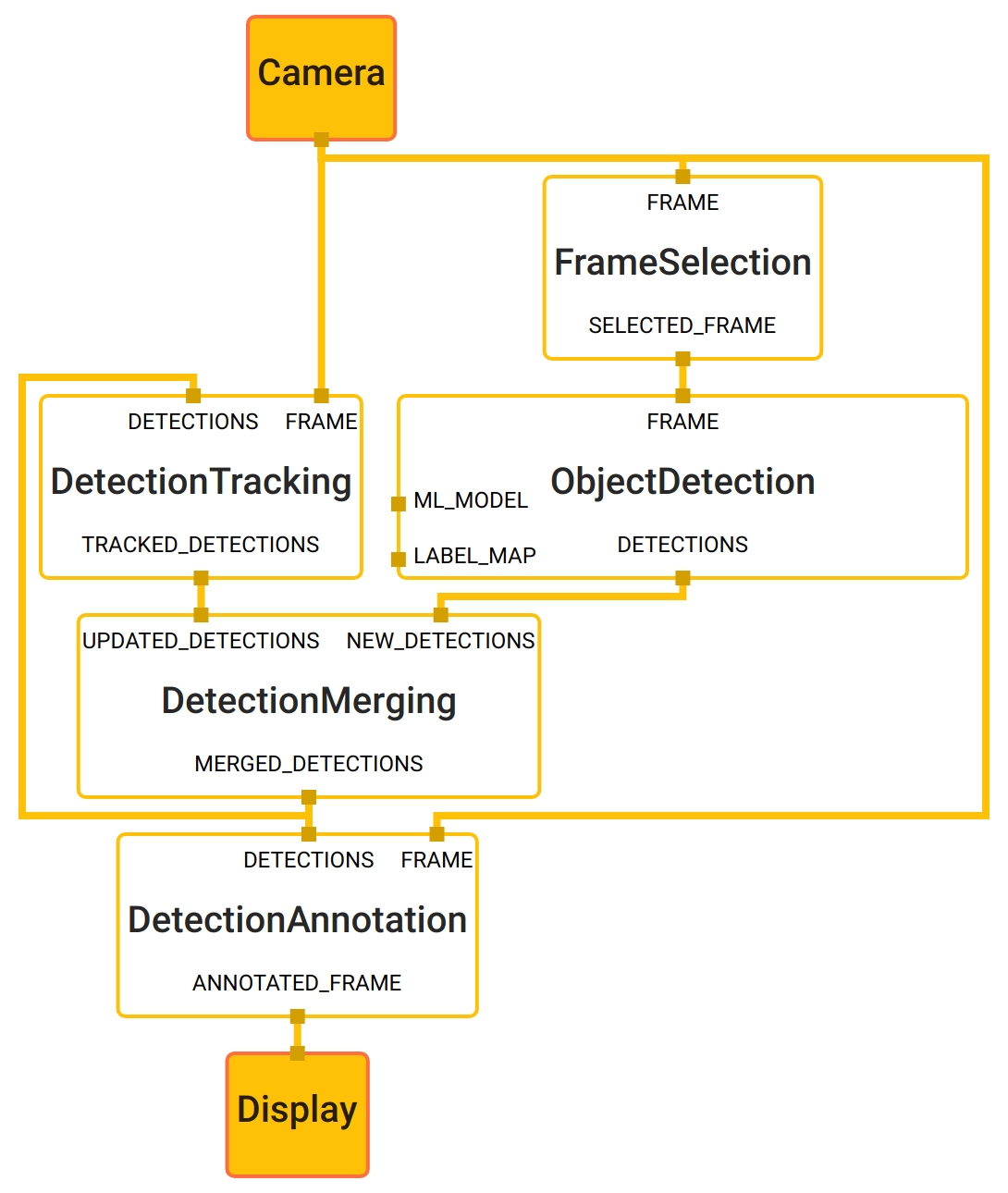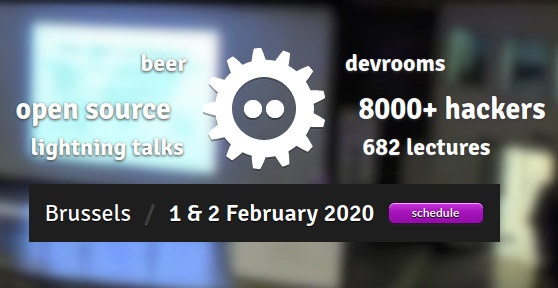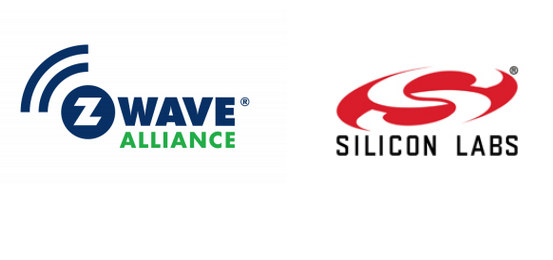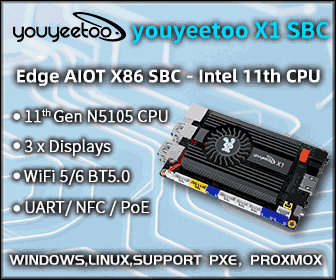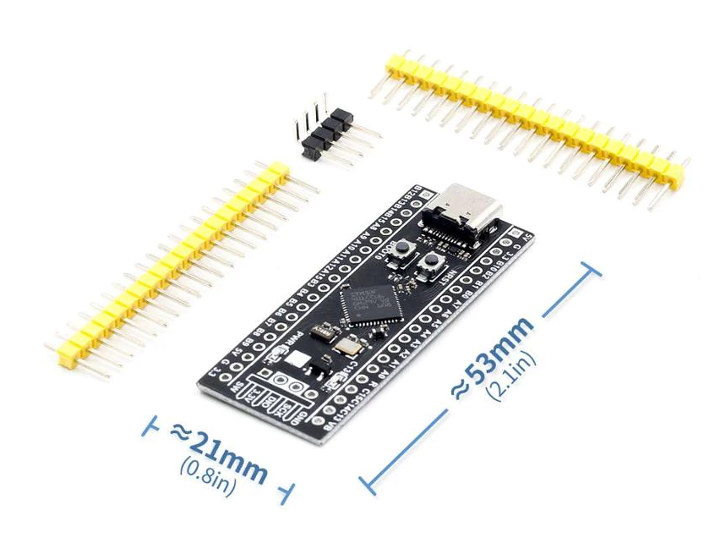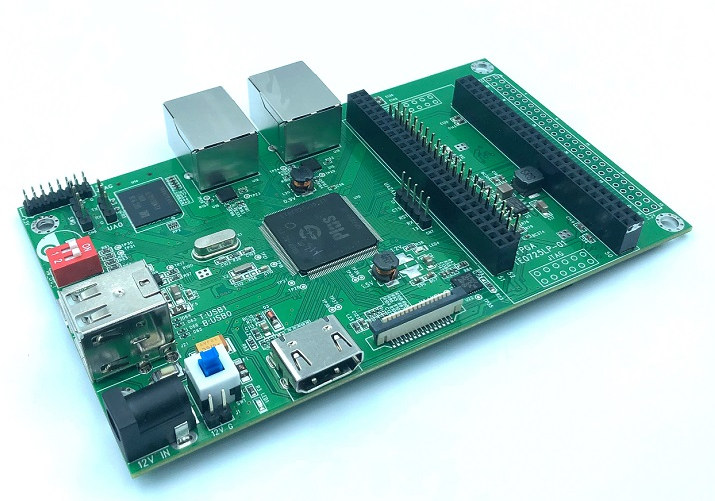The smallest, thinnest Linux computer There are many business card-sized SBCs, like RPi 4. But George Hillard, an embedded systems engineer decided it would be interesting to build an actual business card that was a computer. His card runs Linux and houses an Allwinner F1C100s carrying an ARM9 processor with 32MB RAM and 8MB flash storage. The Basics It holds some of his photos, a copy of his resume and a couple of games, which is pretty good for something like a business card. There is a USB port off one corner, and the unit can connect to a computer and boot up in about 6 seconds and shows up under USB as a flash drive. But that piggybacked computer-attached display is really the only type of display the card can manage. The Shell and Linux Version The shell has the games, including a version of 2048, and a small […]
Zidoo M9 Mini PC Review – Part 1: Unboxing & Teardown
Over the years, Zidoo has made TV boxes for the consumer market, and digital signage players for businesses. The recently announced Zidoo M9 aims at both markets, plus other applications such as IoT, robotics, and artificial intelligence. Zidoo M9 is either sold as a board or a complete TV box reference design with a case, as it exposes all the usual ports of a TV with HDMI, USB, and Ethernet. But you can do more with internal connectors for cameras, PCIe interfaces, SIM card slot, MPI DSI and eDP connectors, and so on. The company has sent me a review sample, so let’s first check out the accessories provided with the box, and have a look into the hardware design today, before testing the Android firmware in the second part of the review. Zidoo M9 Unboxing The package makes it clear Zidoo M9 “mini PC” looks like a TV box, […]
SH72 Soldering Iron Looks Similar to TS100, Sells for around $10
TS100 is a popular soldering iron in the shape of a pen, and whose temperature is controlled by an STM32 microcontroller. Parameters such as temperature, temperature steps, sleep time and others can be setup over USB, and the soldering is powered by a standard 19V power supply often used with laptops. TS100 sells for around $50, while the more recent USB-C powered version (TS80) sells for a little over $70. But a new model that looks similar to TS100 minus the OLED display is now selling for around $10 on Banggood. SH72 soldering iron features and specifications: Temperature range – 220-400℃ Temperature control knob Available/supported tips – SH-B2/SH-BC2/SH-C4/SH-D24/SH-I/SH-K/SH-Ku (Hakko types) Power Supply 12-24V DC input up to 65 Watts via 5.5 x 2.5 mm barrel jack Modes of operation – 12V >=1.5A (18W); 16V >=2A (32W); 19V >=2.1A (40W); 24V >=2.7A (65W) Dimensions Control handle – 110 x 16 x […]
MediaPipe is an Open Source Perception Pipeline Framework Developed by Google
MediaPipe is an open-source perception pipeline framework introduced by Google, which helps to build multi-modal machine learning pipelines. A developer can build a prototype, without really getting into writing machine learning algorithms and models, by using existing components. This framework can be used for various vision & media processing applications (especially in VR) such as Object Detection, Face Detection, Hand Tacking, Multi-hand Tracking and Hair Segmentation. MediaPipe supports various hardware and operating system platforms such as Android, iOS & Linux by offering API’s in C++, Java, Objective-c, etc. And this framework also capable of utilizing GPU resources. MediaPipe Components The framework is comprised of three major components A framework for inference from the pipeline data Tools for evaluation And a collection of reusable inference and processing components It follows the approach of Graph-based frameworks in OpenCV and all processing happens with the context of the Graph. The Graph contains a […]
Some Interesting Talks from FOSDEM 2020 Schedule
We wrote about IoT devroom call for proposals for FOSDEM 2020 a little while ago, and as the free open-source developer meetup is getting closer, FOSDEM 2020 organizers released the schedule. So I’ll look at some of the talks in the relevant devrooms such as the Internet of Things, hardware enablement, Embedded, Mobile and Automotive, as well as RISC-V and others to compose my own little virtual schedule for the 2-day event. Saturday, February 1 10:30 – 10:50 – How lowRISC made its Ibex RISC-V CPU core faster – Using open source tools to improve an open-source core – by Greg Chadwick Ibex implements RISC-V 32-bit I/E MC M-Mode, U-Mode, and PMP. It uses an in-order 2 stage pipe and is best suited for area and power-sensitive rather than high-performance applications. However, there is scope for meaningful performance gains without major impact to power or area. This talk describes work […]
Z-Wave Open Standard to Enable Third-Party Z-Wave Silicon and Stack Suppliers
Roughly one year ago, Silicon Labs released a publicly available Z-Wave SDK and a Raspberry Pi 3 Image to make it easier to work with the wireless protocol targetting home automation. But Z-Wave specifications were still closed, which meant Z-Wave chips could only be purchased from Silicon Labs, a bit like LoRa chip can only be purchased from Semtech. The advantage of being closed is that you’re the only supplier, but this will limit market adoption, and customers may be wary of relying on a single partner for their long term plans. That must be why The Z-Wave Alliance and Silicon Labs have now decided to open Z-Wave specifications to Silicon and Stack suppliers. That paves the way to third-party software platforms and Z-Wave radios from some of the 700+ companies which are members of the Z-Wave Alliance. The Z-Wave specification release is scheduled for H2 2020, and will include […]
$3 STM32 “Black Pill” Board Features STM32F4 Cortex-M4 MCU, Optional SPI Flash
STM32 “Blue Pill” is a popular and cheap (>$2) development board based on STMicro STM32F103C8T6 Arm Cortex-M3 microcontroller and programmable with the Arduino IDE. I’ve just been informed that the board got an upgrade of sorts with a “Blue Pill 2” board featuring either STM32F401CCU6 or STM32F411CEU6 Arm Cortex-M4F microcontroller, and a USB Type-C port for power and programming. It’s black, so instead, I’ll call Black Bill as some others appear to do. Specifications for the Blue Pill & Black Pill boards (new features in bold): MCU (one of the other) STMicro STM32F103C8T6 ARM Cortex-M3 MCU @ 72 MHz with 64KB flash memory, 20KB SRAM. STMicro STM32F401CCU6 Arm Cortex-M4F MCU @ 84 MHz with 256 KB flash, 64KB SRAM STMicro STM32F411CEU6 Arm Cortex-M4F MCU @ 100 MHz with 512KB flash, 128KB SRAM Storage – Footprint for SPI flash USB Blue Pill – 1x micro USB port for power and programming […]
Banana Pi BPI-F2S Industrial SBC Launched for $58 with Linux 4.19 based Debian or Fedora OS
Last month we covered Banana Pi BPI-F2S single board computer (SBC) for industrial, IoT, and smart audio application that was powered by the intriguing SunPlus SP7021 “Plus1” processor featuring four Cortex-A7 cores, one ARM9 ARM9 real-time core, and one 8051 I/O controller core, as well as up to 512MB built-in DDR3 RAM. At the time, the board was not available, and we had limited information about software support, except the company would provide a Yocto-based Linux distribution. The good news is that you can now buy Banana Pi BPI-F2S industrial SBC on Aliexpress for $58 and Taobao for 390 RMB, and the company released source code and OS images for the board. Here’s a reminder of Banana Pi BPI-F2S specifications: SoC – Sunplus SP7021 “Plus1” with a quad-core Cortex-A7 processor @ 1.0 GHz, one Arm A926 microprocessor, an 8051 core to handle I/Os, and 128MB or 512MB DDR3 DRAM. Storage […]


